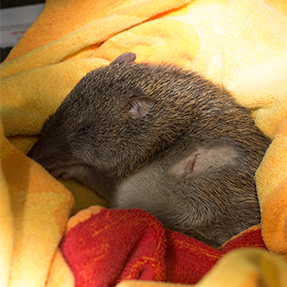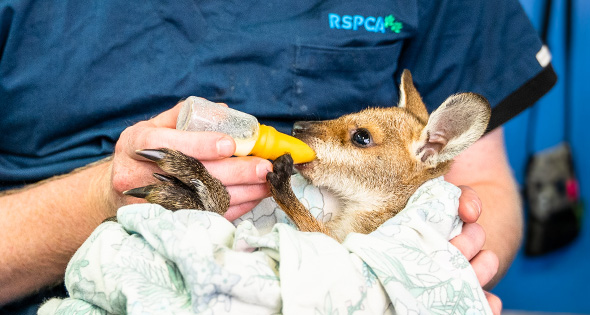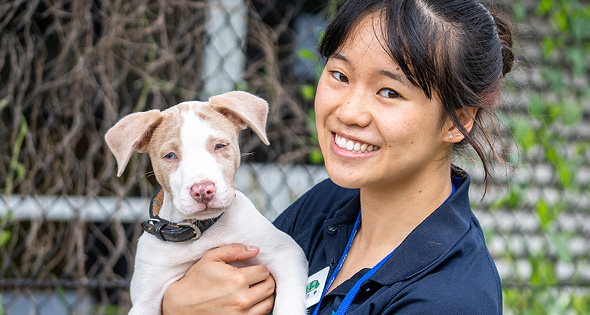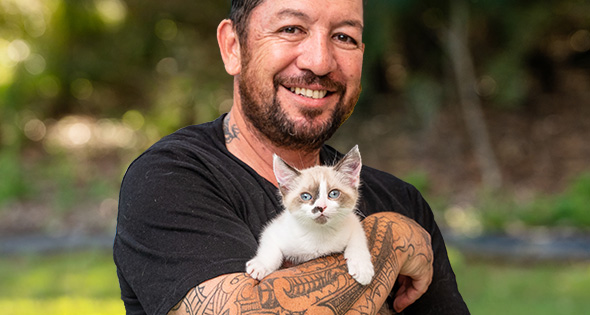Exactly one year ago RSPCA Queensland called for the public to have their say on the review of the Animal Care and Protection Act 2001 (ACPA)
In 2001, the ACPA set the benchmark for animal welfare legislation nationally. The corresponding working relationship between RSPCA Queensland and Government partner in animal welfare, the Department of Agriculture and Fisheries (DAF), has resulted in overwhelming positive outcomes for animals.
RSPCA Queensland believes there is an opportunity to update the Act in some key areas where animal welfare improvements can be made to reflect community expectations.
The state government has now commenced releasing proposed amendments to the ACPA, and the recent announcement that prong collars will be banned in Queensland is welcomed by the RSPCA.
“RSPCA supports training through positive reinforcement – building and strengthening the bond you have with your pet by giving them something they like. Prong and other training devices like electric collars however work in a negative way, often causing other serious behaviour problems such as aggression, anxiety and fear in your companion,” says RSPCA Queensland CEO Darren Maier.
RSPCA Queensland is dedicated to increasing positive outcomes for animals that require care and protection within the community – focused on providing the best quality of life for every one of the 47,000 plus animals that rely on the charity every year.
Mr Maier says, “There are a number of aspects of the Act that need to be reviewed. As a key stakeholder in the review process for the Act, we put forward 16 recommendations in the ACPA review last year.”
A significant component of the work that the RSPCA does for animals is conducted by the Inspectorate. Since the ACPA commenced, Queensland RSPCA Inspectors have provided advice, support and education to pet owners and the wider community about how to appropriately care for animals and investigated over 293,000 animal welfare complaints. They have conducted more than 1,850 prosecutions, issued more than 15,000 Animal Welfare Directions and rescued more than 36,000 animal victims of cruelty or neglect.
Despite these significant outcomes, neglect, abandonment, injury and cruelty to animals still persists. Lifestyle and socio-economic change has also altered the human-animal bond meaning community awareness and expectations about animal welfare and wellbeing has significantly increased.
RSPCA Queensland recommends the following key areas of improvement within the ACPA:
Currently under the ACPA, whether there is a breach of Duty of Care for one animal or hundreds, the maximum penalties in the legislation are the same. The maximum penalty for Duty of Care offences is currently one-year imprisonment. RSPCA believe that for more serious offences, the maximums should be higher which will also mean higher penalties in court.
A Prohibition Order is handed down in court by a Magistrate which prevents offenders from owning certain animals for a period of time.
Prohibition Orders are vital, yet currently under the ACPA orders that are made in other jurisdictions in Australia cannot be enforced in Queensland.
RSPCA believes new provisions under the ACPA are needed to ensure that prohibition orders made in other jurisdictions are enforceable in Queensland, all prohibition orders are noted on a central register, reporting obligations are imposed on offenders to notify any change of address during the period of the order, and Inspectors are provided a limited power of entry to check compliance with prohibition orders.
RSPCA believes the Act should expressly prohibit tethering of animals without a reasonable excuse. Tethering causes frustration, distress and panic, builds insecurity and anxiety and can lead to aggression and other behavioural disorders. Entanglement can result in an inability to access water, shade or shelter. Panic sets in which quickly leads to injury or overheating and a painful death.
Mr Maier says, “We look forward to hearing more from government with what improvements we can expect for animals in our communities, and for the opportunity for further engagement and input. We would also like to thank members of the public who are also advocating for better animal welfare too.”








